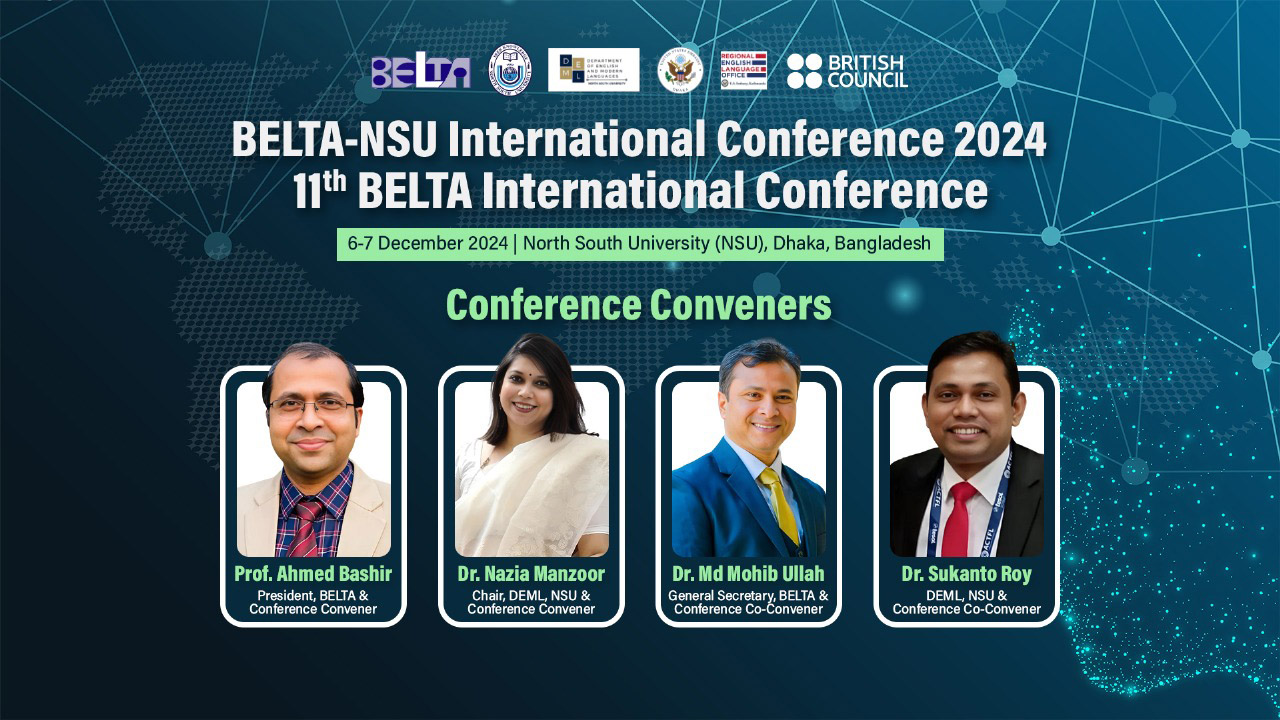11th International Conference of BELTA
- North South University, Dhaka, Bangladesh
6-7 December 2024
Department of English and Modern Languages
North South University (NSU), Dhaka, Bangladesh
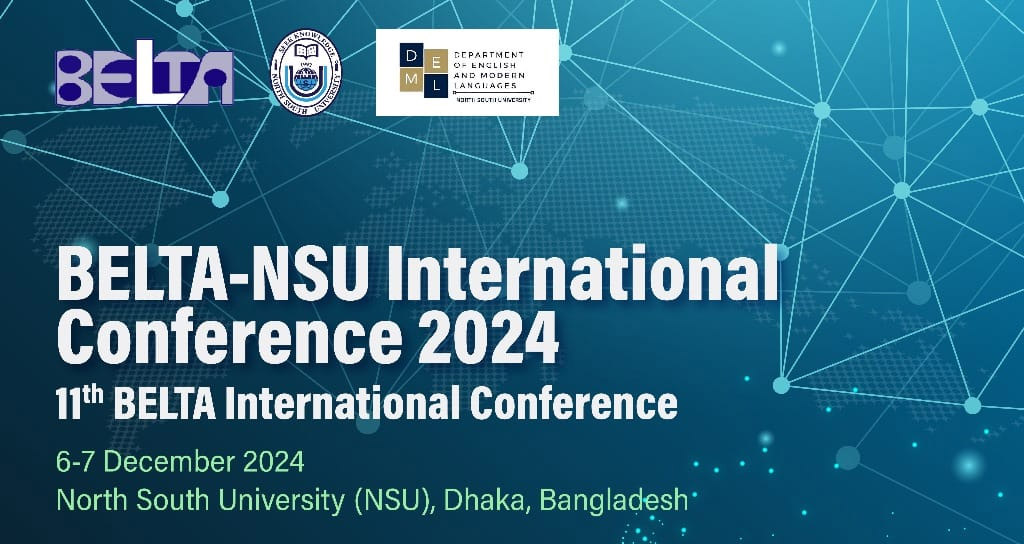
6-7 December 2024
Department of English and Modern Languages
North South University (NSU), Dhaka, Bangladesh
Call for Proposals
Theme: Re/Envisioning Paradigms in English Language Education
The world we inhabit calls for new visions, novel missions, and innovative actions. The demands of the new world are causing paradigmatic shifts in the areas of English language planning and policy, curricula, instructional materials and methods, assessment and research methodologies. From the tried and tested classrooms, with blackboards, OHPs, and libraries for researchers to the recent innovations in technology such as, ChatGPT, LMS, Caspio, etc., learning and teaching have never been such a dynamic, and challenging organic sphere of knowledge. Perceiving the importance to understand and examine these new paradigms of English language education to prepare the stakeholders for the challenging new world, Bangladesh English Language Teachers Association (BELTA) in association with North South University (NSU), Dhaka, Bangladesh is inviting prospective academics, researchers, teachers, students, and policymakers to submit their proposals for papers, posters, and workshops to the BELTA-NSU International Conference 2024 entitled Re/Envisioning Paradigms in English Language Education. The conference offers a wide range of opportunities for researchers, academics, and practitioners to gain or disseminate knowledge and to develop professional networking through lively interactive sessions, plenaries, and keynotes.
Sub-themes of the Conference (but not limited to)
Presentation Types:
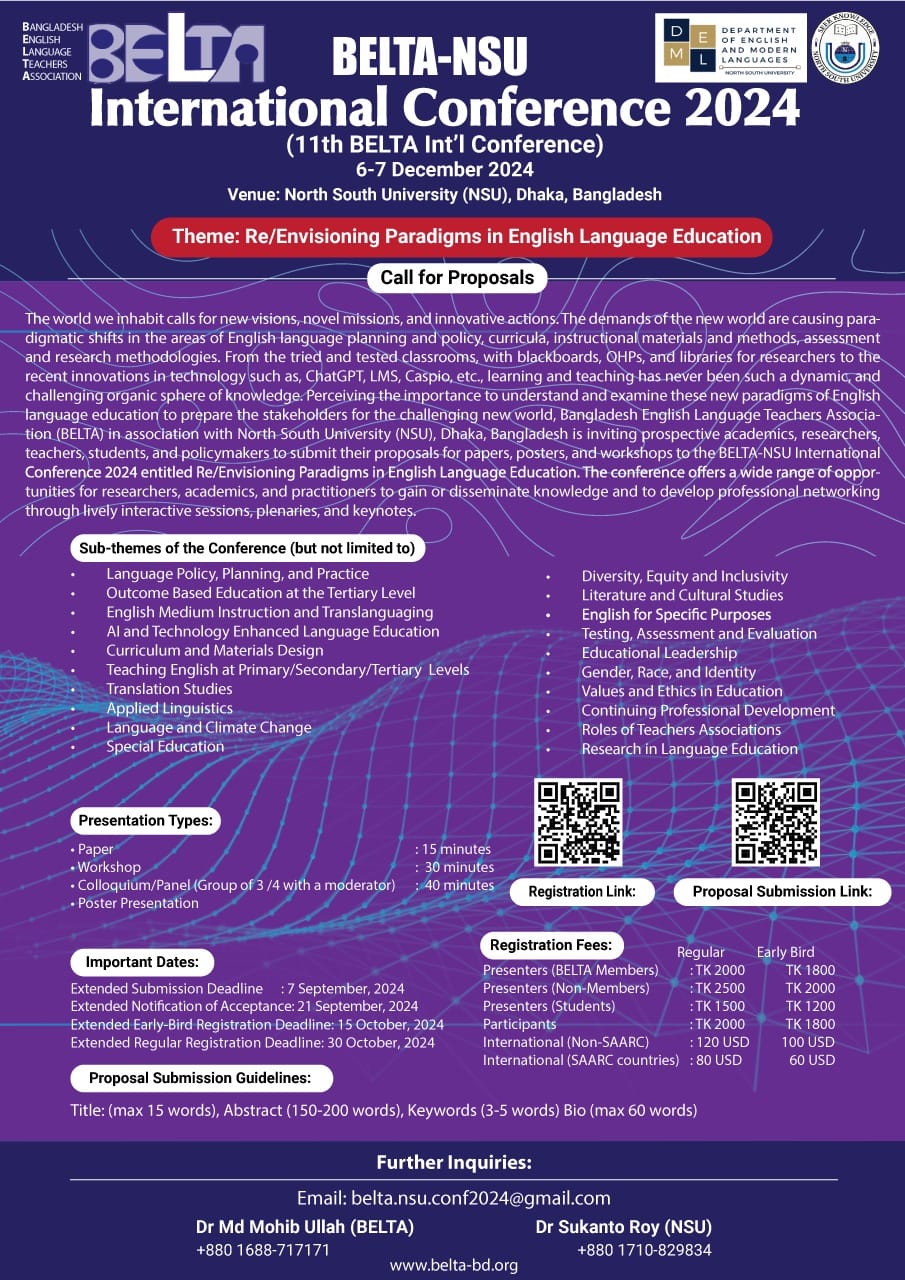

Submit Your Proposal
Proposal Submission Link: https://forms.gle/rjnPyAsqrcWB4aL46
Proposal Submission Guidelines
Title: (max 15 words), Abstract (150-200 words), Keywords (3-5 words) Bio (max 60 words)
Further Inquiries: [email protected]
Dr Md Mohib Ullah (BELTA)
Contact: +88 01688717171
Dr Sukanto Roy (NSU)
Contact: +88 01710829834
Important Dates
| Proposal Submission Deadline | : 21 September 2024 |
| Notification of Acceptance | : 30 September 2024 |
| Early-bird Registration Deadline | : 15 October 2024 |
| Regular Registration Deadline | : 30 October 2024 |
Conference Registration
Registration Link: https://forms.gle/yRWs6hgQDiStur3q9
Registration Fees:
| Registration Types | Regular | Early Bird |
| Presenters (BELTA Members): | TK 2000 | TK 1800 |
| Presenters (Non-Members): | TK 2500 | TK 2000 |
| Presenters (Students): | TK 1500 | TK 1200 |
| Participants: | TK 2000 | TK 1800 |
| International (Non-SAARC): | 120 USD | 100 USD |
| International (SAARC countries): | 80 USD | 60 USD |
Keynote Speakers
Brief Bio of Martin Lamb, Keynote Speaker
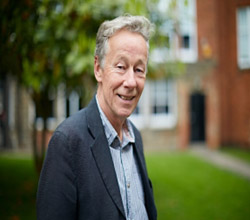
Martin Lamb is a Senior Lecturer in TESOL and Academic Lead for Internationalization in the School of Education, University of Leeds, UK. He previously worked as a teacher/trainer in Sweden, Indonesia and Bulgaria, and while at Leeds has also taught extensively in Oman and China. Having always wondered during his teaching career why some students worked harder than others, his main research interest is learner motivation, and more recently (viewing them as closely connected) teacher motivation. He is the Chief Editor of The Palgrave Handbook of Motivation for Language Learning (2020), and has published his research widely in other journals.
Plenary Speakers
Promoting Equitable Education and Sustainable Development Through Strategic Recruitment of Extralocal Teachers of English
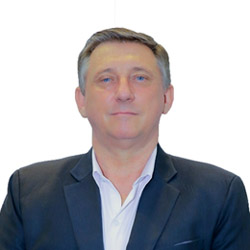
Abstract
English is a vital tool for international communication and educational advancement in today's globalized world. This plenary presentation addresses the strategic recruitment of extralocal teachers of English (ETEs) in secondary education within developing countries, focusing on their significant role in promoting equitable education and sustainable development. Recruited from outside the local region, ETEs bring diverse linguistic skills and cultural perspectives that enrich the learning environment and foster intercultural understanding. However, inconsistencies in recruitment practices and misalignments with broader developmental goals present substantial challenges. We will explore how to bridge these gaps by examining the alignment between specified recruitment qualifications and those recognized by educational recruiters and experts. Utilizing a convergent mixed-methods approach, we will integrate quantitative and qualitative data, combining document analysis with in-depth interviews and field surveys. The conclusions will emphasize the need to align the recruitment of ETEs with educational strategies that support sustainable and inclusive growth. This presentation will offer empirical evidence and strategic insights, informing policy recommendations and contributing to the global discourse on effective teacher recruitment. Enhancing ETE recruitment practices can significantly improve educational outcomes and support the broader objectives of development education in developing countries. This effort will ensure that recruitment practices are equitable, inclusive, and aligned with sustainable development goals.
Bio
David D. Perrodin is a distinguished professional with a multifaceted career, currently serving as an English Language Specialist and Journal Manager with the Institute of Population and Social Research at Mahidol University. Completing his Ph.D. in Development Education at Silpakorn University, his ongoing research addresses disparities in recruiting extralocal teachers of English (ETEs) and promotes sustainable development education practices in Thailand. With nearly 100 scholarly publications and over 300 keynote and plenary presentations globally, his contributions to English language teaching are substantial. David's expertise spans senior consultancy roles, ESL/EFL teacher training, and international research, highlighting his commitment to advancing global education and promoting innovation in English language education.
Reenvisioning Paradigms in English Language Teaching: Leadership and Transformation in a Post-Regime Change Educational Context

Abstract
The anti-discrimination movement, which morphed into a mass uprising that led to the downfall of a political regime, has stirred the educational landscape of Bangladesh. The emergence of student leaders as political actors has redefined the role of educational leadership, challenging long-held narratives and administrative practices. The previous regime, emulating Finland's model, experimented with imported best practices of curriculum reform, which are now under scrutiny. The new government has rightly identified the difficulties in teaching a creative curriculum and assessing students in a diverse system that does not have sufficient educators with the knowledge and resources to implement such sophisticated and ambitious plans in large classrooms effectively. There is a connection between the need for leadership reforms and the demand for a change in curriculum.
This plenary discussion thus aims to evaluate our current academic leadership, plagued by bureaucratic and political interferences. The talk advocates for transformative leadership, which sees educators as agents of change. This will allow teachers to address the systemic inequalities while also giving students a sense of agency. The proposed educational model will take the prevailing socio-economic disparities in the public education system into consideration to criticize the current one-size-fits-all model. The proposals will include the incorporation of an adaptation strategy that promotes inclusivity and equity to give students equal opportunities for their academic and individual growth. In other words, the paper will highlight the need for new educational leadership that espouses diversity, challenges existing power structures, and pursues a curriculum based on the lived experiences and aspirations of all learners. By using empirical research and current educational theory, the paper reimagines paradigms in English language teaching and broader educational practices in Bangladesh and seeks a more equitable and inclusive educational environment for our youth.
Keywords
educational leadership, transformative leadership, curriculum reform, socio-economic disparity, public education, English language teaching
Bio
Dr. Shamsad Mortuza is an academic administrator, educator, poet, translator, and columnist. Currently a Professor of English at the University of Dhaka, he also serves as the Director of the Office of International Affairs and the Director of the Centre for China Studies at the university. He previously held the position of Pro-Vice-Chancellor at the University of Liberal Arts Bangladesh (ULAB) from 2018 to 2022. His academic career includes teaching at several institutions, including his alma mater, Jahangirnagar University. As a Fulbright scholar, he attended the University of Arizona, and later earned his PhD from Birkbeck College, University of London, focusing on The Figure of the Shaman in Contemporary British Poetry.
In 2013, Dr. Mortuza was awarded a senior Fulbright postdoctoral fellowship at UCLA. He has authored six books and over 40 articles and book chapters. He is the editor of Crossings: ULAB Journal of English Studies and the Journal of Bangladesh National Museum, and writes a popular weekly column, "Blowin' in the Wind," for The Daily Star. He also serves on the editorial board of Asiatic: IIUM Journal and the literary journal Six Seasons Review. In addition, Dr. Mortuza is the President of the Fulbright Alumni Association of Bangladesh.
Reenvisioning Paradigms in English Language Teaching: Leadership and Transformation in a Post-Regime Change Educational Context
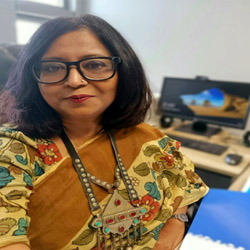
Bio
Shaila Sultana is a Professor and the Director of the BRAC Institute of Languages, BRAC University, Bangladesh. She is also a Professor (on leave) and the former Head of the Department of English Language, Institute of Modern Languages, University of Dhaka, Bangladesh. She has published more than 80 articles and book chapters in/for top-tiered peer-reviewed international journals and publishing houses. Her recent publications include a co-authored book, Popular Culture, Voice and Linguistic Diversity and co-edited handbooks Routledge Handbook of English Language Education in Bangladesh (2021), Language in Society in Bangladesh and Beyond (2024), and Language and Sustainable Development (in press). She is on the editorial boards of Language in Society (Cambridge University Press), Journal of English-medium Instruction (John Benjamins), Ampersand (Elsevier), Journal of AsiaTEFL, Crossing, Journal of BELTA, and other journals. Professor Shaila Sultana has been the most cited author in Linguistics and Literature from the University of Dhaka and Bangladesh since 2021, according to the AD Scientific Index.
Featured Speakers
Conditions For and Against Translanguaging and Multilingual Pedagogies (TMP) in the Malaysian ESL Classroom: Development of a teacher toolkit
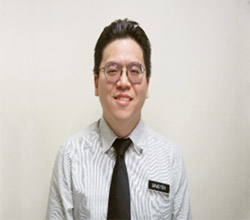
David Teh
Department of Academic Excellence
International Languages Campus
Institute of Teacher Education Malaysia
[email protected] / [email protected]
Orcid ID: https://orcid.org/0000-0002-2743-033X
Abstract
Translanguaging, multilingual, and plurilingual (TMP) pedagogies in English as Second or Foreign Language (ESL/EFL) classrooms are fast becoming norms in many educational contexts. However, very few guidelines exist to help teachers determine if TMP pedagogies are necessary in their practice, thus leading to an increased risk of blind adherence to and blanket implementation without regard to the individual classroom context. This study aimed to delineate the critical factors of utilising TMP pedagogies across a spectrum of pedagogical and socio-economic considerations. In phase one, 33 teachers participated in a comparative case study, where they described their preferences for/against TMP pedagogies in their classroom practice. Emerging from this is six critical conditions that teachers consider when deliberating the use TMP pedagogies, which are: (i) teacher multilingual instruction, (ii) school meso-landscape, (iii) classroom nano-communities of practice, (iv) collaborative teacher practice, (v) multilingual resources and infrastructures, and (vi) school ethos. In phase two, a six-item questionnaire based on these six conditions was administed. Friedman’s non-parametric multivariate by rank analysis determined that these six conditions have significantly different degrees of importance, while Covariance-based Structural Equation Modelling verified that four out of six conditions are significant factors to the respondents’ tendency towards TMP pedagogies in their classroom practices. This study concludes with the production of a teacher’s self-assessment toolkit to assess the necessity of TMP pedagogies in their immediate teaching context.
Keywords
Teacher toolkit, translanguaging, multilingual, and plurilingual pedagogies (TMP), conditions, factors
Biodata
David Teh is is a lecturer at the Institute of Teacher Education, International Languages Campus, in Kuala Lumpur, Malaysia. With a strong commitment to education, he has collaborated closely with students, educators, and academicians from diverse educational and socioeconomic backgrounds in Malaysia. His primary focus is on enriching professional and personal development through active engagement with various stakeholders, including students and teachers. His research centres on developing comprehensive guidelines for multilingual approaches to language learning and teaching, with a special emphasis on their cultural and linguistic relevance to local contexts.
Quranic Framework for Language Teaching
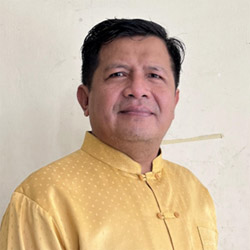
Ikhsanudin
Universitas Tanjungpura, Pontianak City, Indonesia
[email protected]
Abstract
While the Quran is widely regarded as a profound guide for various aspects of life, its contributions to the field of language teaching, learning, and acquisition have not been thoroughly explored. The first verse revealed to Prophet Muhammad emphasizes the importance of reading, and several other verses encourage humans to think, speak, listen, and write, highlighting the central role of language in the Quran. Furthermore, Quranic communication principles, such as qaulan baleeghan (clear speech), qaulan sadeedan (truthful speech), and qaulan ma’roofan (kind speech), provide a meaningful foundation for understanding effective communication and language pedagogy. This presentation introduces a Quranic framework for language education by examining the scripture's insights into the nature of language and communication. The framework also addresses how these principles can inform teaching methods, offering a comparison between Quranic perspectives and secular approaches to language pedagogy. Through referencing key Quranic verses, this presentation aims to contribute to the ongoing discourse on language teaching, offering educators and researchers new perspectives that align their practices with Quranic teachings, particularly within Muslim-majority contexts. The framework seeks to enrich language education by incorporating a deeper understanding of these spiritual and linguistic insights.
Keywords
communication, language teaching, Quranic framework
Biodata
Iksanudin is an Associate Professor at Universitas Tanjungpura, Indonesia, specializing in ELT materials development and teacher professional development. He teaches both graduate and undergraduate courses, and has presented internationally in the USA, UK, Singapore, and Germany, among others. Ikhsan serves as the Editor-in-Chief of Jeltim and is the Regional Coordinator of TEFLIN for Kalimantan Barat
Conference Organizing Committee
